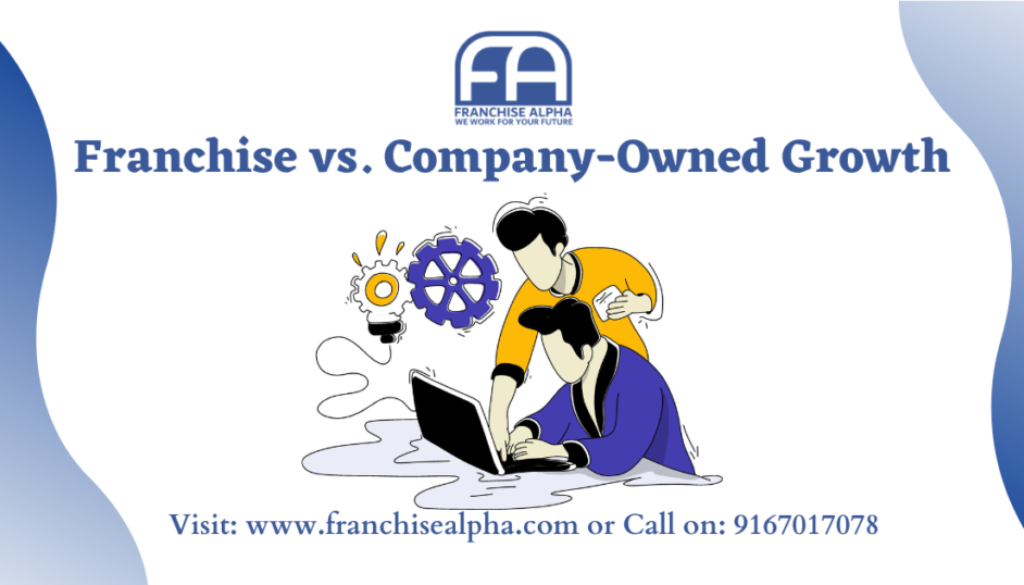Franchise vs. Company-Owned Growth
When it comes to expanding a business, entrepreneurs often face a crucial decision: Franchise vs. Company-Owned Growth? Both approaches have their merits and challenges, and understanding the nuances of each can significantly impact the trajectory and success of a business. In this blog post, we will explore Franchise vs. Company-Owned Growth, highlighting the advantages and considerations associated with each path.
Franchise Growth:
Franchising involves granting individuals or groups the right to operate a business using a proven brand, system, and support from the franchisor. Here are some advantages of franchise growth:
1. Rapid Expansion: Franchising allows businesses to grow quickly by leveraging the resources, capital, and manpower of franchisees. Franchisees invest in opening new locations, bearing the upfront costs and responsibilities, thus enabling the franchisor to scale without incurring significant expenses.
2. Local Expertise: Franchisees bring local market knowledge, connections, and insights to the table. This can be invaluable for businesses seeking to penetrate new markets or regions where understanding local preferences and cultural nuances is essential for success.
3. Shared Risk: Unlike company-owned growth, franchising allows for shared risk. Franchisees have a vested interest in the success of their business, and this can drive their dedication and motivation. Franchisees invest their own capital, reducing financial burdens on the franchisor and increasing the chances of success for both parties.
4. Brand Building: Franchising aids brand building as each new franchise unit introduces the brand to a new market. Multiple franchisees working independently to grow the business can lead to increased brand visibility, customer recognition, and loyalty.
Company-Owned Growth:
Company-owned growth involves opening and operating new locations under the direct control of the parent company. Here are the advantages associated with this approach:
1. Maximum Control: With company-owned growth, the parent company has complete control over all aspects of the business, from operations and marketing to product quality and customer experience. This level of control allows for consistency in brand messaging and standards across all locations.
2. Centralized Decision-Making: Operating under a single management structure allows for streamlined decision-making. The parent company can quickly adapt strategies, implement changes, and respond to market demands without the need for extensive coordination with multiple franchisees.
3. Profit Retention: All profits generated by company-owned locations go directly to the parent company. This can be advantageous for businesses seeking to reinvest profits into research and development, expanding core operations, or exploring new business avenues.




